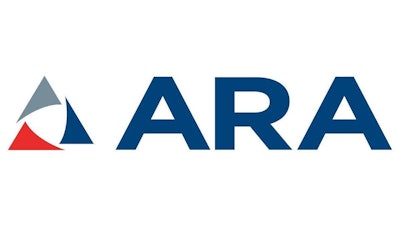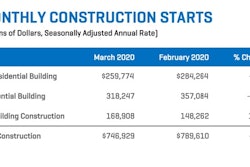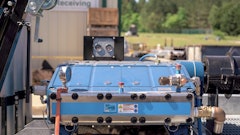
The latest American Rental Association (ARA) forecast projects a steep drop in U.S. rental revenue in the second quarter of 2020, followed by quarter-over-quarter improvement for the third and fourth quarters of 2020.
In the end, however, industry revenue is predicted to show a 16.6 percent decline for 2020, according to the latest economic models shown by IHS Markit, the forecasting firm that compiles data and analysis for the ARA Rentalytics service. Canadian rental revenue is projected to drop 11.3 percent in 2020. The new forecast was introduced during an ARA Rentalytics webinar on April 9 hosted by ARA to discuss the economic impact of the coronavirus (COVID-19) on the equipment and event rental industry. The webinar, which was the third in a series of four webinars, covered ARA’s response to coronavirus; industry surveys to understand the impact on ARA members; legislative updates from Washington, D.C.; and a look at the overall economy. One of the underlying themes was the updated timeline for when the U.S. economy and the equipment and event rental industry would return to pre-coronavirus levels.
The surveys of ARA members show that their businesses are reaching a state of equilibrium with many members indicating that while the situation may not be getting better, it is no longer getting worse. This may be attributed to some optimism regarding recover/stimulus funding or simply that the coronavirus outbreak has reached maximum impact on the industry.
The party and event segment of the industry has been hit the hardest so far, with many reporting declines of more than 90 percent in revenue for March and April compared to last year. Construction in some areas has slowed with the impact being felt by equipment rental companies, however some rental stores focused on general tools for the do-it-yourself market are finding things close to business as usual this spring as those staying at home look to tackle projects.
On the other side of 2020, projections show growth in 2021, but it looks to be a small amount of growth, followed by more solid growth in 2022.
Overall, IHS Markit sees the current downturn not matching the Great Recession from 2008-2009. The financial levels may mimic those years, but they do not see this recession lasting as long.




















